Expand Bimstec cooperation: PM
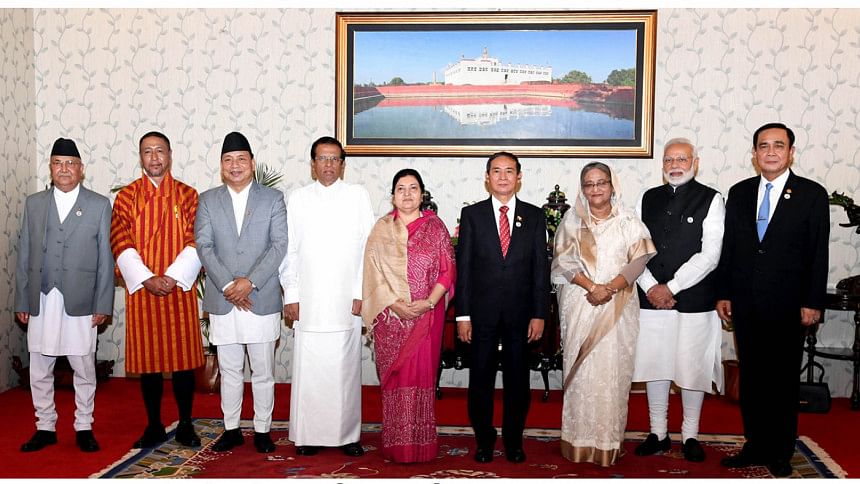
Prime Minister Sheikh Hasina yesterday stressed the need for expanding cooperation in Bimstec forum through creation of a free trade area, investment and energy collaboration.
“Global scenario has been changing very fast resulting in new dynamics in every sphere. We have to match the new dynamics and the current reality through three-pronged cooperation -- bilaterally, regionally and multilaterally,” she said.
The PM was addressing the inaugural session of the 4th Bimstec Summit at hotel Soaltee Crowne Plaza in Kathmandu, Nepal, reports BSS.
She called for stepping up cooperation in enhancing people-to-people contact and funding mechanism.
The Bay of Bengal Initiative for Multi-Sectoral Technical and Economic Cooperation (Bimstec) is a regional grouping comprising Bangladesh, India, Sri Lanka, Bhutan, Nepal, Thailand and Myanmar.
Hasina said although Bimstec achieved a modest success in the last 21 years, a huge task was lying ahead of its members.
“We need to consolidate fundamental legal frameworks to carry forward the substantive engagements in our cooperation to produce visible results.”
The premier said the special Bimstec Retreat in Goa in 2016, hosted by Indian Prime Minister Narendra Modi, was an important step forward.
Lauding the bilateral arrangement on the electricity grid connection among some Bimstec countries, she said it could be turned into Bimstec Electricity Grid with participation of other nations.
To achieve an early dividend from the Bimstec grouping, Hasina proposed categorising 14 sectors into several clusters to make them more focused and implementable.
“Trade, investment, connectivity, science and technology, energy, poverty alleviation and agriculture sectors that directly add economic and social benefits for the people may be categorised under a cluster called Sustainable Development.
“Security, counter-terrorism, climate change and disaster management that protect and promote our prosperity may be placed under another cluster called Security and Stability.
“Culture and public health that facilitate and influence progress and prosperity may be placed under the third cluster called People-to-People Contact,” she said.
She suggested reviewing the Bimstec's scope and structure in view of the evolving political and economic scenario.
The PM thanked the Nepal government for its support to take the Bimstec forward during the last four and a half years.
She said Father of the Nation Bangabandhu Sheikh Mujibur Rahman first dreamt of regional, economic and social progress in South Asia. Since then, regional cooperation has been an integral component of Bangladesh's foreign policy, the PM added.
Terming Bimstec a potentially dynamic region in the world, the prime minister said hosting its Secretariat in Dhaka was a manifestation of Bangladesh's full commitment to the forum.
Hasina said with 1.5 billion people comprising almost 22 percent of global population, the Bimstec has a huge scope for expanding intra-trade. “We have to utilise the potentials much of which still remains untapped.”
Pointing out the significant economic and social progress achieved by Bangladesh over the last 10 years, she said the UN secretary general during his recent visit to Bangladesh termed the country an economic miracle.
The PM said Bangladesh has been pursuing a policy of inclusive development with the conviction to address hunger and poverty, illiteracy and inequality to build a stable and sustainable society.
Hasina said poverty, climate change and terrorism, among others, still remain some of the Bimstec countries' common enemies.
Reiterating her government's “zero tolerance” policy in addressing terrorism, she said the government was working hard to eliminate militancy and terrorism.
The theme of the Summit is “Towards a Peaceful, Prosperous and Sustainable Bay of Bengal Region.”
Nepalese Prime Minister KP Sharma Oli, also the Summit chairperson, Indian PM Narendra Modi, Chief Adviser to the Bhutanese interim government Dasho Tshering Wangchuk and other Bimstec leaders also addressed the session.
INDIA TO HOST MILITARY EXERCISE
The Indian PM yesterday announced that his country would hold a Bimstec joint military exercise and a meeting of army chiefs of the member nations in September, reports our New Delhi correspondent.
Speaking at the Summit, Modi said there is not a single Bimstec country which has not faced the menace of terrorism and the problem of terror networks is linked to trans-national crimes and drug trafficking.
“We are ready to host a conference within the Bimstec framework to discuss matters related to intoxicant substances.”
The premier said India was committed to expanding its National Knowledge Network in Bangladesh, Sri Lanka, Bhutan and Nepal to help digital connectivity. He also proposed extending the Network to Myanmar and Thailand.
FMs AGREE ON $50b PROJECTS
In an ambitious plan to connect the Bimstec member states, its foreign ministers identified and agreed on Wednesday to push forward 167 various connectivity-related projects at an estimated cost of $50 billion, reports the Kathmandu Post.
The ministers agreed to approve projects, at least in principle, following a detailed study by the Asian Development Bank. The member states are developing Bimstec Transport Connectivity Master Plan, with a goal to complete it by the end of next month, Nepalese Foreign Minister Pradeep Gyawali told the newspaper.
The ADB study included transportation and cross-border facilitation, multimodal transport and logistics, infrastructure development, aviation, maritime transport, human resources development, as well as communication linkages and networking.
The Bimstec Transport Infrastructure and Logistic Study (BTILS) was updated by the ADB in 2014. Out of 167 projects, the study has prioritised 66.
Wednesday's meeting also underlined the establishment of Bimstec permanent Secretariat in Bangladesh; Bimstec Cultural Industries Observatory in Bhutan; and Bimstec Centre for Weather and Climate in India as some of the key achievements in institutional development.
Representatives from the member states also endorsed the text of draft Summit Declaration and recommended that to the heads of state for approval.

 For all latest news, follow The Daily Star's Google News channel.
For all latest news, follow The Daily Star's Google News channel. 

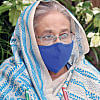
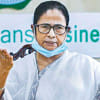
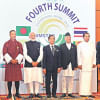

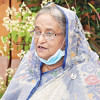

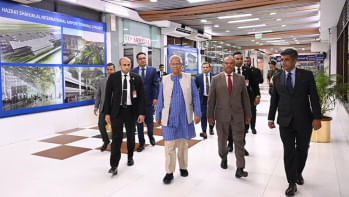
Comments